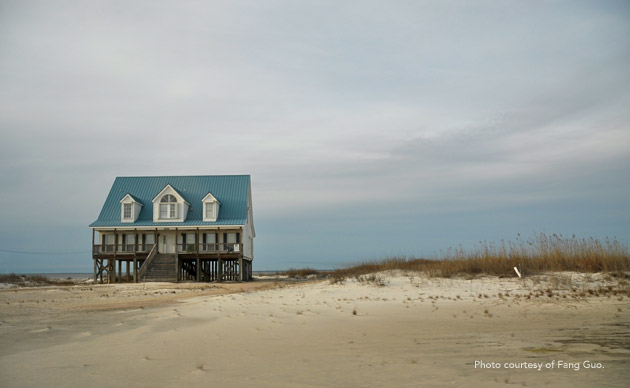

Waterfront landowners hold exclusive title to their properties, including the right to exclude the public. However, waterfront property is unique in that the land along the shore is subject to the public trust doctrine. Through the public trust doctrine, the state holds title to all tidelands below the mean high tide line. Alabama holds these lands for the benefit of the public for purposes like fishing, navigation, and recreation. Essentially, this allows the public to boat along waterways but does not allow them to disembark and cross private property without permission.

What is traditional land ownership?
Traditional land ownership included ownership of the full title, the right to eject (keep out trespassers), and the right to transfer (sell or give the land away). Ownership need not be absolute; it can be split, such as by an easement or a right of way.
What is a public trust?
A public trust consists of the same three parts as a regular trust: the trust property (or the public’s right to that property), the trustee (the state), and the beneficiary of the trust (the public). The public trust doctrine is a legal concept that applies a public trust ownership to lands that have traditionally been public, such as submerged tidal lands. Because the state owns such land in trust, it cannot give the land to private owners.
How do I control public access?
One of the most fundamental rights of property ownership is the right to exclude. As a property owner, you have the right to determine who can access your waterfront land above the mean high tide line. If you choose to allow access, you have the right to prescribe the kinds of activities and behavior that are acceptable on your property. For example, you may allow friends and family to use your waterfront land but tell them they can’t build a bonfire or leave kayaks out overnight. If you wish to allow access to the public, you may wish to clarify these restrictions in written contracts or require prospective users to buy certain interests in the property.
If I wish to grant public access rights to my property, how can this be done?
Landowners can convey their land or the right to cross or use it to anyone they wish. Landowners can transfer interest of their land to facilitate coastal access to individuals, or to entities, organizations and agencies that have public access as part of their purpose, such as land trusts, local, state and federal governments, and private trust. Such transfers of property rights are typically achieved through a contract, although it can also be done through a will or some other legal instrument.
What is property owned in trust?
Property owned in trust consists of the property itself, the trustee or holder of the property (who will often be the manager of the property), and the beneficiary of the trust, or the person or organization who receives any benefits from the property. Land trusts can assist landowners in conserving their land. Though often set up as private charitable organizations rather than actual trusts, land trusts can act as trustees or full owners of property.
What are the benefits to allowing access to my waterfront land?
There are a variety of benefits to allowing access to your waterfront land. For starters, this will likely create good will within your community. Depending on the manner of allowing access, a qualifying conservation easement may generate tax benefits. Also, the sale of an easement can generate income for the property owner.
If someone gets injured while using my land, can I be held liable?
As a landowner, your liability typically depends on whether the legal status of the person injured on your land was that of an invitee, licensee, or trespasser. If a person is an “invitee” on your property, then you owe them a duty of reasonable care for their safety. An “invitee” is a person who enters your land by invitation of the owner for their mutual advantage, and is owed a duty of reasonable care while on your premises.
On the other hand, if a person is a “licensee” or a “trespasser”, then you merely owe them a duty to refrain from willfully or wantonly injuring them. A “licensee” is a person who enters your property at his or her own convenience, pleasure or benefit pursuant to the license or implied permission of the owner. A licensee is on your property for his or her own benefit, while an invitee is there to mutually benefit him or herself and you. The classification between a licensee and invitee is crucial for liability purposes, as a landowner owes a much higher duty to an invitee. A “trespasser” is just that — a person who comes upon your property without your express or implied consent.
Does the Alabama Recreational Use Statute provide me with additional liability protections?
Another key component in Alabama’s premises liability law is when you allow public access to your waterfront. In this case, the Alabama’s Recreational Use law is applicable. This law protects landowners from liability, should someone become injured while recreationally using their land. The Alabama Recreational Use law limits the liability of landowners who provide access to their land or water areas to the public for outdoor recreational purposes, such as fishing or water sports. Landowners are not required to maintain their land safe for public use and do not owe a duty of care toward persons using the land, whether the person is an invitee, licensee, trespasser, or otherwise.